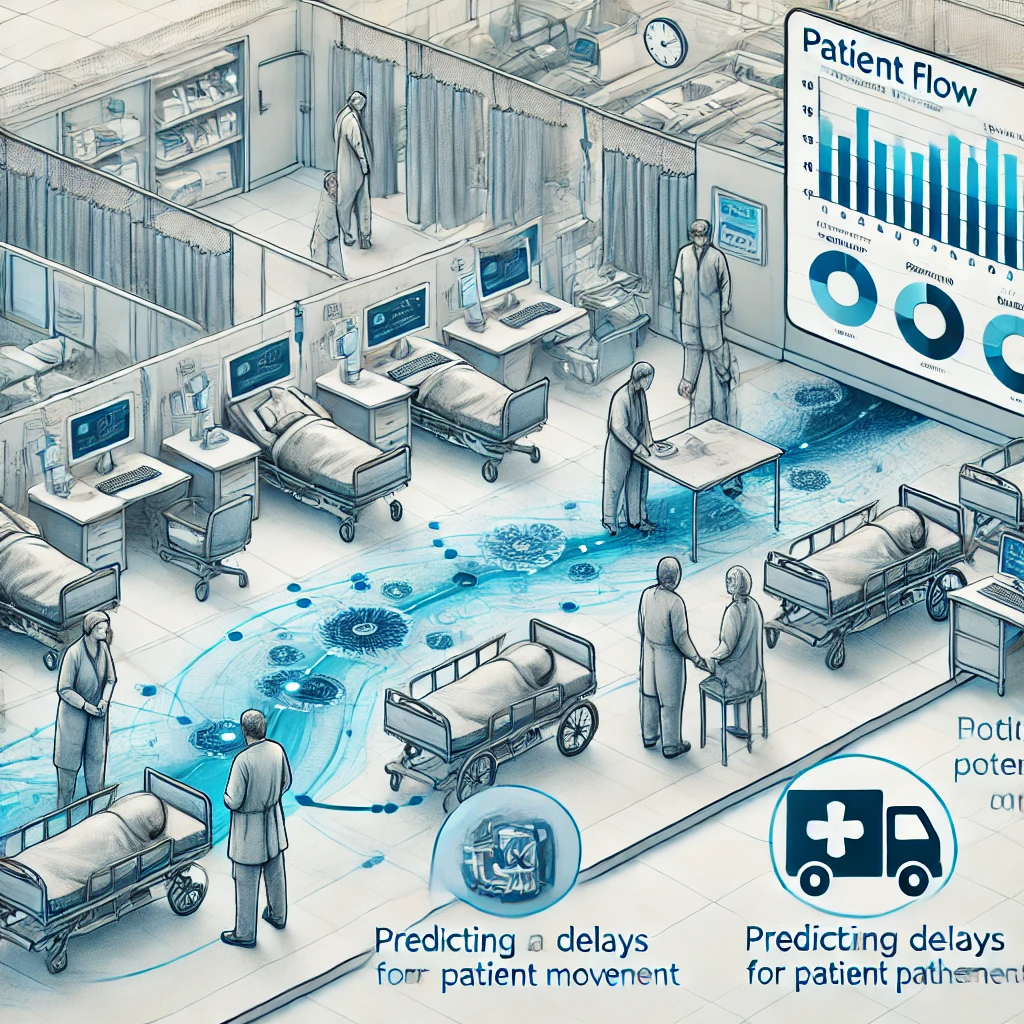Hospitals are complex ecosystems where efficient logistics are crucial for delivering high-quality patient care. The intricacies of hospital logistics, from inventory management to staff scheduling, require sophisticated solutions to ensure seamless operations. Operations research (OR) provides a strong foundation for tackling these challenges, and when combined with AI-based prescriptive analytics, the results can be transformative. In this blog post, we’ll explore several critical operations research problems faced by hospitals and how advanced solutions developed by Predictim Globe are revolutionizing hospital logistics.
Inventory Management in Hospitals
Problem Description:
Inventory management in hospitals involves maintaining optimal levels of medical supplies, medications, and equipment. The challenge is to ensure that the hospital never runs out of critical items while also avoiding overstocking, which can lead to wastage and increased costs. Given the unpredictable nature of patient needs and emergencies, managing inventory efficiently is a complex task.
Solution by Predictim Globe:
Predictim Globe’s AI-based prescriptive analytics solution optimizes inventory management by predicting the future demand for supplies based on historical data, patient trends, and seasonal variations. The system prescribes optimal reorder points and quantities for each item, ensuring that the hospital maintains sufficient stock levels while minimizing waste. The solution also considers the shelf life of perishable items, automating the process of reordering and reducing manual errors.

Staff Scheduling and Allocation
Problem Description:
Staff scheduling in hospitals is a critical task that involves assigning the right number of healthcare professionals to different shifts while considering factors like patient load, staff availability, and skill sets. The challenge is to balance these constraints while minimizing costs and ensuring that patients receive timely and appropriate care.
Solution by Predictim Globe:
Predictim Globe’s AI-driven solution for staff scheduling uses advanced algorithms to create optimal schedules that align staff availability with patient needs. The system considers various factors such as staff preferences, legal regulations, and hospital policies, ensuring that the right staff are assigned to the right shifts. By predicting patient inflow and workload, the system can dynamically adjust schedules in real-time, reducing overtime costs and preventing staff burnout.

Patient Flow Optimization
Problem Description:
Patient flow optimization involves managing the movement of patients through various stages of care, from admission to discharge. The goal is to reduce wait times, prevent bottlenecks, and ensure that patients receive timely care. However, unpredictability in patient arrivals and varying lengths of stay make this a challenging problem.
Solution by Predictim Globe:
Predictim Globe’s AI-based prescriptive analytics solution optimizes patient flow by analyzing historical data and real-time information to predict patient arrivals, lengths of stay, and potential bottlenecks. The system prescribes the most efficient pathways for patient movement through the hospital, minimizing delays and improving patient satisfaction. It also helps in optimizing bed allocation and resource utilization, ensuring that the hospital can handle patient surges without compromising care quality.

Operating Room (OR) Scheduling
Problem Description:
Operating Room (OR) scheduling is a critical logistics challenge that involves assigning surgeries to available ORs while considering surgeon availability, patient conditions, and emergency cases. The challenge is to maximize OR utilization while minimizing patient wait times and ensuring that emergency cases are prioritized.
Solution by Predictim Globe:
Predictim Globe’s AI-driven OR scheduling solution leverages advanced prescriptive analytics to optimize the use of operating rooms. The system dynamically schedules surgeries based on surgeon availability, patient urgency, and OR availability, ensuring that resources are used efficiently. It also predicts potential conflicts and prescribes adjustments to minimize delays and cancellations.

Ambulance Dispatch Optimization
Problem Description:
Ambulance dispatch optimization involves ensuring that emergency medical services (EMS) are dispatched quickly and efficiently to respond to patient emergencies. The challenge lies in minimizing response times while considering factors such as traffic conditions, ambulance availability, and the severity of the emergency.
Solution by Predictim Globe:
Predictim Globe’s AI-based prescriptive analytics solution optimizes ambulance dispatch by analyzing real-time data on traffic, ambulance locations, and emergency severity. The system prescribes the fastest and most efficient routes for ambulances, ensuring that they reach patients as quickly as possible. It also dynamically reallocates resources to ensure that the nearest available ambulance is dispatched, reducing response times and improving patient outcomes.

Conclusion
Hospital logistics present a range of complex challenges that require advanced solutions to ensure efficient operations and high-quality patient care. From inventory management to ambulance dispatch, operations research problems are integral to the smooth functioning of hospitals. Predictim Globe’s AI-based prescriptive analytics solutions provide innovative and effective ways to address these challenges, ensuring that hospitals operate at peak efficiency while delivering the best possible care to patients.
As healthcare continues to evolve, the demand for smarter, more efficient hospital logistics solutions will only grow. By adopting advanced AI-driven solutions like those offered by Predictim Globe, hospitals can enhance their logistics, reduce costs, and improve patient outcomes.
Note: Illustrations provided in this post are conceptual and intended to enhance the understanding of the problems and solutions discussed.





